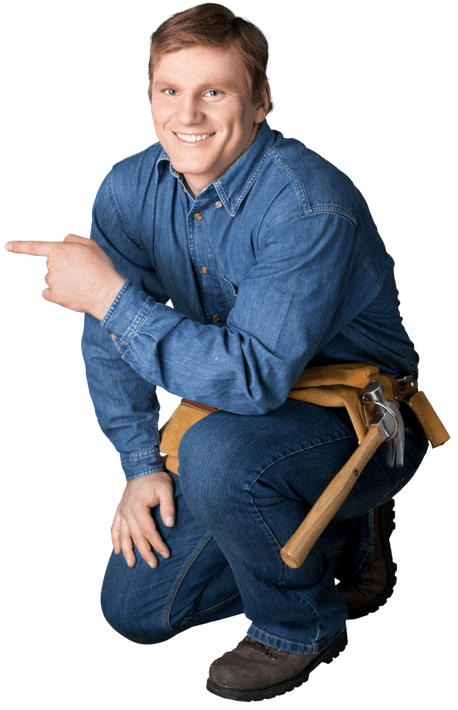LVP
Luxury Vinyl Plank (LVP) Flooring
Luxury Vinyl Plank flooring is made to look like hardwood with plank widths usually less than 10 inches and lengths up to 72 inches. LVP lends itself to be utilized in places where you wouldn't always use real wood like basements, bathrooms, and even kitchens. Because of its high durability, ease of installation, and reasonable price, LVP has surged in popularity.
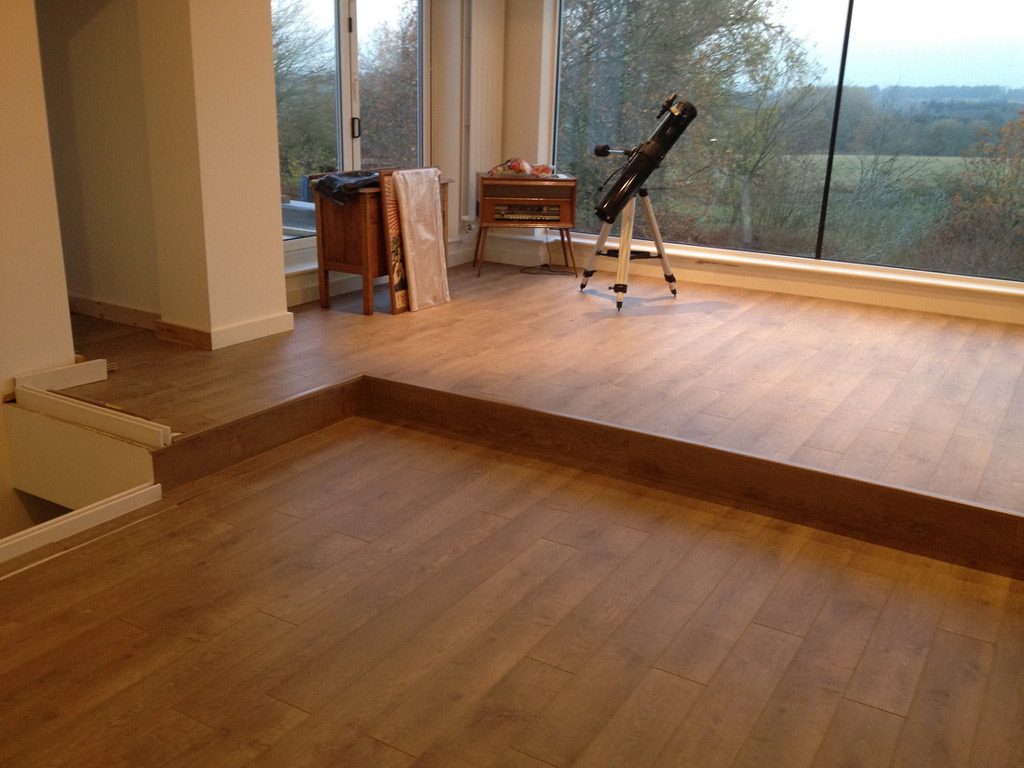
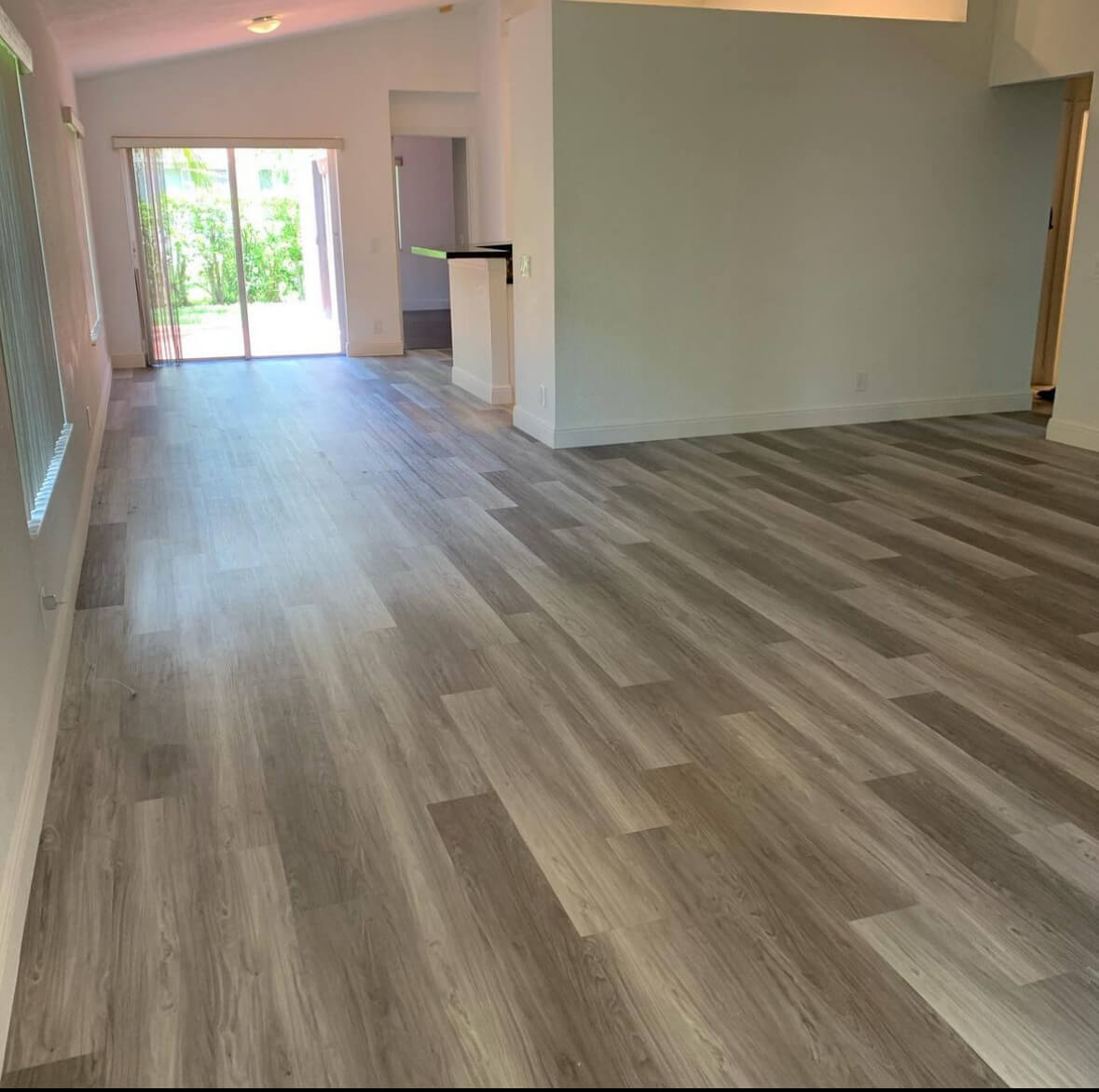
We Have the Best Personal Services in the Area
Although Luxury Vinyl Plank flooring is more friendly to DIY installation than other products, Warehouse Direct Flooring will provide you with expert installation service if need be. We highly recommend contacting us for your installation if there are stairs, uneven subfloor problems, or unique room shapes. These installation hurdles typically require a professional.
Since LVP is a vinyl based flooring material, it can be installed into areas where wood could never be practical. Our expert project management staff will work with you on picking out the right grain pattern and plank size to fit your needs. Take a look at some of the work we have done by visiting our portfolio page. You will see how beautiful LVP is and what a difference it will make in your home.
There Are Two Types Of Luxury Vinyl Plank (LVP) Flooring: SPC and WPC
When it comes to choosing the perfect LVP flooring, understanding the differences between SPC (Stone Plastic Composite) and WPC (Wood-Plastic Composite) is crucial. Both options feature water-resistance, making them ideal for most rooms in a home. SPC, being a newer product, boasts a signature rigid core that is virtually indestructible and offers increased durability. On the other hand, WPC provides more comfort and functionality. The distinction lies in their cores – SPC utilizes a Stone Polymer Composite for added stiffness and durability, while WPC incorporates a Wood-Plastic Composite with a foaming agent for enhanced warmth and comfort. Understanding the pros and cons, the layered construction, and factors like cost, durability, and comfort can guide you in making an informed decision between SPC and WPC vinyl flooring.
LVP Construction
LVP products feature a five-layer construction. The first is a UV layer that ensures easy maintenance, prevents discoloration, and has antibacterial properties. The second is a wear layer ranging from 12-30 mil depending on the product durability and use-case. Big box stores often carry products with 6 mil wear layers – you will not find those in our showroom. Third is the decorative layer, featuring a high quality image that closely mimics the desired look. Fourth is the product core, either made with SPC or WPC. Finally, there is an attached pad offering antibacterial properties, sound reduction, and added comfort.
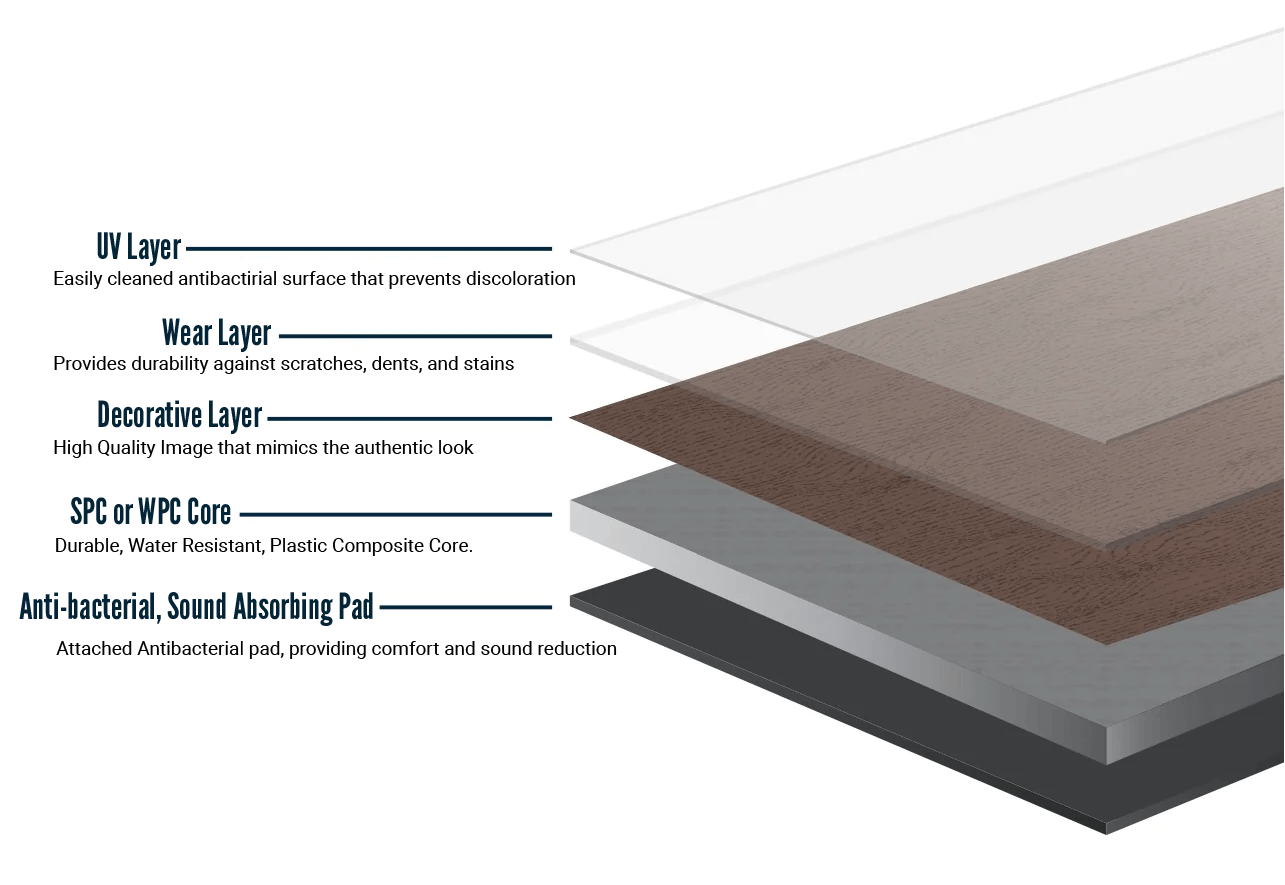
Products
SPC and WPC
We carry a wide range of both SPC and WPC products in our showroom from the factories around the world.
SPC
SPC flooring, with its unique core composition of approximately 60% limestone, polyvinyl chloride, and plasticizers, offers unparalleled resilience and near complete waterproofing. The higher density of the SPC core makes it exceptionally durable, resisting scratches and dents with ease. Its rigid composition ensures stability, especially in high-traffic areas, and it's less susceptible to expansion in extreme temperature changes. Additionally, SPC tends to be more budget-friendly than WPC, making it a cost-effective choice without compromising on performance.
WPC
WPC, with its core composition including polyvinyl chloride, plasticizers, and wood-like materials, delivers exceptional durability with a touch of comfort. While both SPC and WPC share design versatility, WPC takes the lead in comfort underfoot, thanks to the foaming agent in its composition. This added cushioning makes WPC ideal for spaces where one might want to walk barefoot. The foaming agent also contributes to superior sound absorption and warmth. While SPC is slightly more affordable and durable, WPC is a great choice for those concerned with warmth, comfort, and acoustics.
Pros & Cons
Luxury Plank Flooring Pros & Cons
Every product, no matter how good it is, has its share of pros and cons. LVP is no different. However, in our experience, the positives of LVP typically outweigh the negatives.
Carefree Vinyl Composition
Just like all vinyl flooring, LVP is waterproof, stain resistant and easy to clean. All you will need is a damp cloth or mop to remove dust or dirt, and if a plank is ever damaged, you can use a hair dryer to loosen the strip, pull out the damaged piece and replace it with a new one. LVP is a carefree and a virtually maintenance free solution to genuine wooden planks or boards.
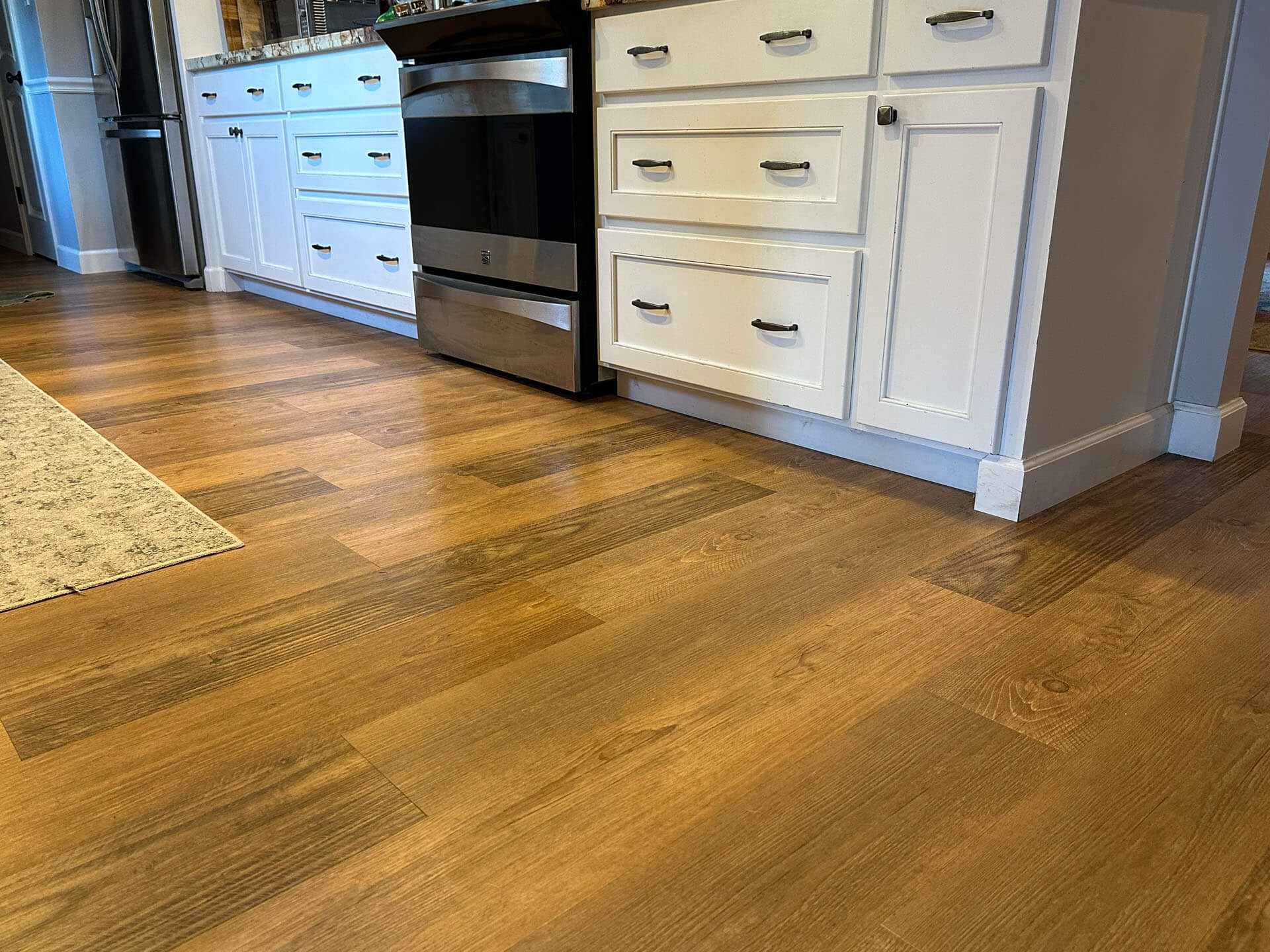
What is a Floating Floor?
One of the hallmarks of LVP installation is that you rarely need to glue it down. LVP can be installed as a "floating floor", meaning that the flooring is not physically attached to the subfloor, rather, it is “floating” on the surface. Once an LVP floor extends from wall to wall, a trim piece is added where the floor meets the wall on all sides, keeping the flooring in place to stop it from shifting when walked on. Floating floors make repairs a breeze; since the flooring is not adhered to anything, pieces can be easily replaced if damaged.
LVP and You
Luxury Vinyl Plank floors are a viable alternative to hardwood floors. In some cases, the patterns and embossed grain in LVP can be so realistic that someone may have to get down on their hands and knees to notice the difference. If you have always wanted a hardwood floor but it goes beyond your budget, Luxury Vinyl Plank flooring could be the right choice for you.




